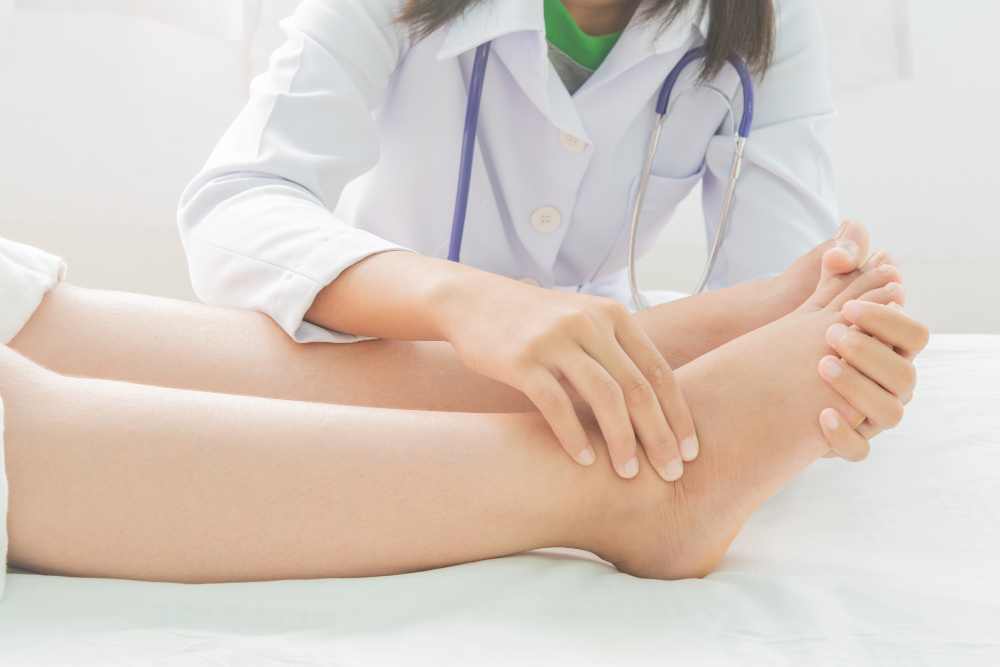Throughout pregnancy, your body dramatically changes to provide for a developing baby inside you. Unfortunately, this means you’ll have to deal with a slew of symptoms, from morning nausea to severe leg pain and swelling, all of which might make it challenging to carry out regular duties.
Constant foot pain throughout pregnancy could make it tough to stand, walk, or even exert pressure on your feet for lengthy periods of time. However, when there isn’t much you can do to prevent foot pain while pregnant, you can do a few things to relieve the discomfort and receive some much-needed relief. But, before we get into how to deal with foot problems during pregnancy, let’s first understand its causes.
Foot Pain in Pregnancy: What Causes It?
Almost all expectant mothers feel foot discomfort due to physical changes in their bodies. However, the causes of each occurrence may vary. Let’s look at some of the most prevalent reasons for foot pain in pregnant women.
- Natural weight increase can place strain on your feet and ligaments at the arches of your foot, causing pain.
- Because of the weight of the developing baby, your body’s center of gravity moves. This will need a change in your standing position and posture, putting undue strain on your feet.
- Due to the added weight, you may have a broader gait. In addition, the muscles in your foot may be strained due to this.
- Cramping in the foot might be caused by increased blood volume during pregnancy.
- Shoes that are too tight or of the wrong size can create pain and stress in your feet.
The Most Common Foot Issues Throughout Pregnancy
- Edema
Women often have edema during pregnancy, which is a condition in which their feet swell substantially, causing physical discomfort, particularly in the second trimester.
The uterus expands as the baby grows, putting tremendous pressure on the blood arteries in the pelvic area. This disrupts blood circulation and leads extracellular fluid to accumulate in the feet, causing swelling.
Excess water retention can sometimes cause edema in the feet. Purple marks may appear on your feet as well. Because edema might make it challenging to move around, it’s recommended to see a doctor if the discomfort becomes unbearable.
- Over pronation
Increased pressure on the feet causes over-pronation, commonly known as flat feet. In addition, due to weight growth during pregnancy, the foot’s arch might flatten out, putting strain on the plantar fascia, which connects the heel towards the front of the foot.
Over-pronation can put additional strain on your back and calf muscles.
How Can One Get Rid of Foot Pain During Pregnancy?
- Always make sure you’re wearing supportive and comfy footwear. Wearing excessively tight shoes can lead to ingrown nails, which will exacerbate your suffering.
- When you sit down, try to keep your feet up. This will help to improve blood flow and prevent edema.
- To enhance blood flow, spin your ankles a little at a time. This easy exercise might also assist in the relief of foot cramps.
- Maintain your hydration. Dehydration can aggravate edema and cause water retention, so drink lots of water.
- Consume a well-balanced diet and limit salt intake to prevent water retention.
- Massage your feet with olive oil or schedule a foot massage to ease pain. For excellent pain relief, you can also try a hot oil massage.
- Utilize cotton socks to help with circulation.
- Consult your doctor to see whether orthotics is an option for you. Foot orthotics can be fitted into your shoes to support your foot arch and keep that from flattening out.
- To maintain fit and strengthen the muscles throughout pregnancy, engage in modest physical exercises. Walking, swimming, and squatting are all good exercises to do when pregnant.
![]()












